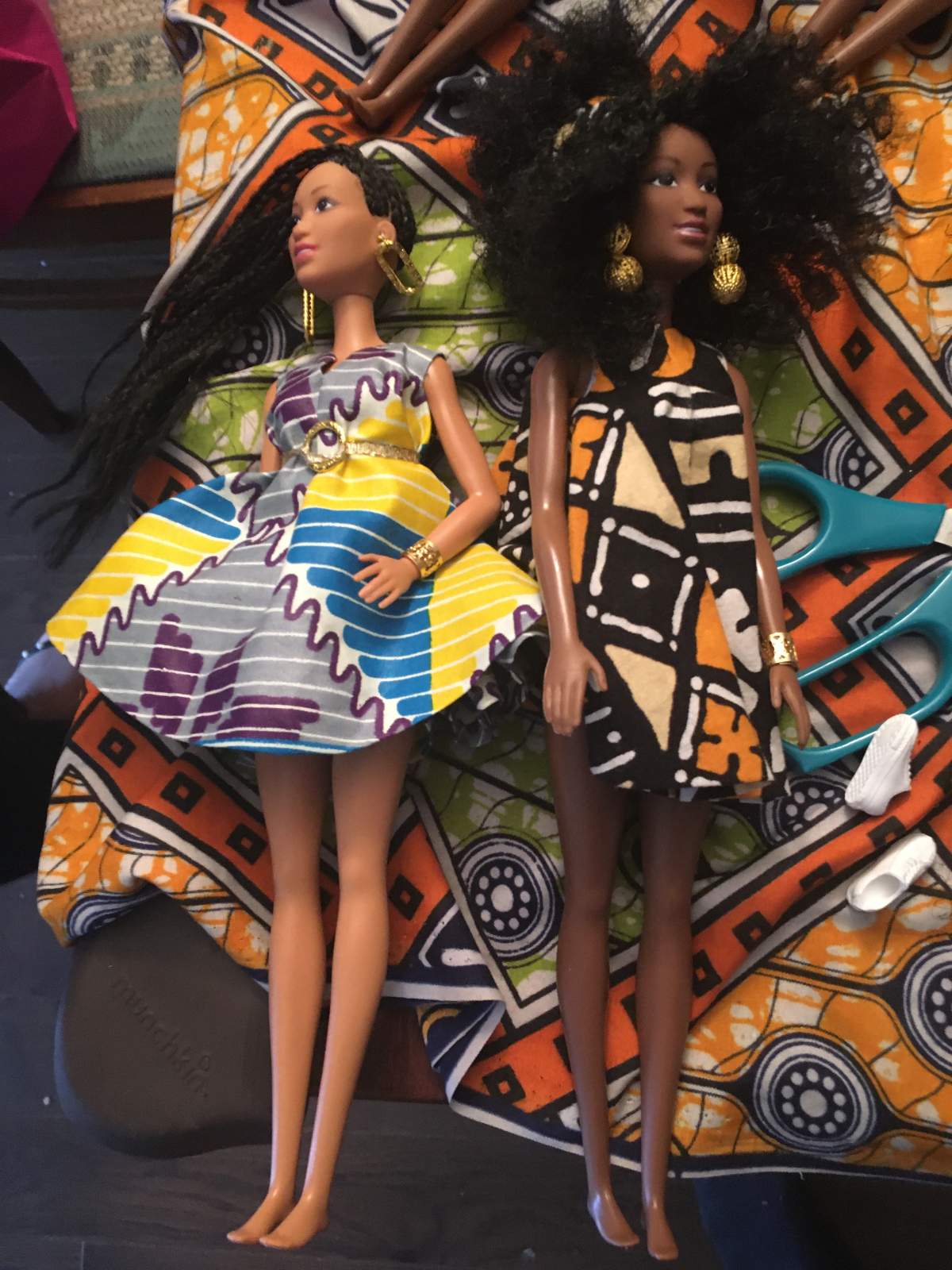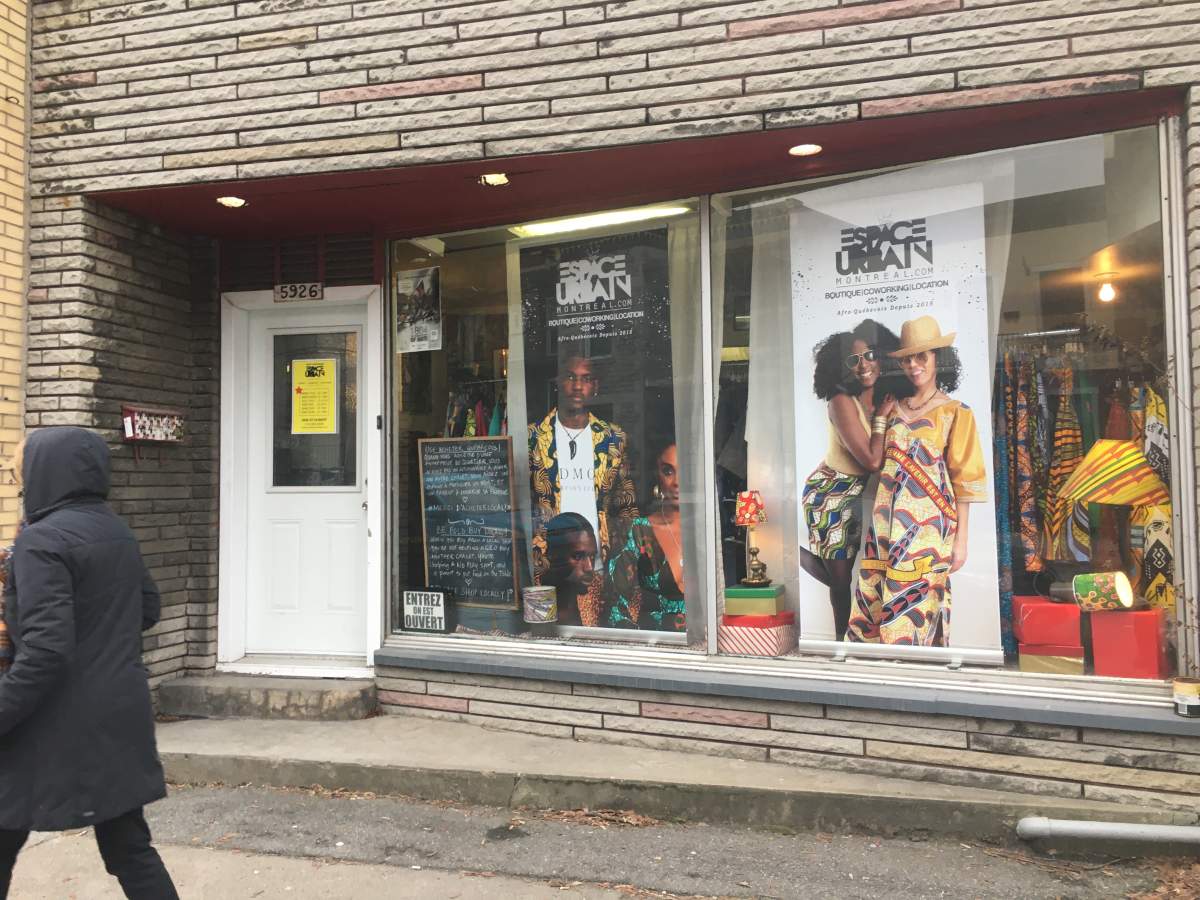When some people see a doll, they simply see a toy, while others understand their deeper purpose.

Dolls are traditionally designed to teach children how to nurture others, allowing those who play with them to act as adults while seeing a reflection of themselves in the doll.
That’s why one Haitian-Montrealer is on a mission to make more culturally diverse dolls. Her custom-made creations are considered nothing short of a blessing by many in the black community.
“I actually found a picture of myself, I was maybe two years old and I was holding a huge brown doll,” said Orphanie Bégon-Leroy. “My mom said I called her Tiffany, which means little Phanie.” The woman behind Les Poupées D’Or admits that she called her company after the first few letters of her first name.
“I did have black dolls growing up,” said Bégon-Leroy. “It’s something that not a lot of people had, not a lot of girls have.”
The 31-year-old self-taught artist learned to master the art of making dolls with authentic black hair by watching hours of online tutorials.
READ MORE: ‘Hair Love’: Short film encourages Black girls to embrace their hair
“We do it from scratch, so we choose the hairstyle, we choose the clothes, the accessories,” she said, adding that the ultimate goal is to offer a wider selection of dolls that aren’t available for black girls.
“Or” means gold in French and gold trimmings have become her trademark. “I love gold!” she said.

Get daily National news
Building a positive self-image for culturally diverse girls can be time-consuming but it’s also a labour of love.
“It takes about three hours to make a full Afro,” she said.
Bégon-Leroy orders dark-skin-toned barbies, removes the straight and silky hair they come with and re-roots them with more realistic hair textures. Her dolls sport a variety of traditional black hairstyles including cornrows, dreadlocks and Afros.
“I just go to a salon and take a pack of hair and that’s basically the hair I use,” said Bégon-Leroy.
“It’s synthetic — it’s not real hair, by the way, because a lot of people ask me that.”
The hair extensions combined with clothes made from African fabric are what make Les Poupées d’Or collection stand out.

“When I found them I was very happy because I have two daughters and it’s very very hard for African people to find dolls who really can speak to our kids,” said Matthieu Dieu. “The quality is just amazing, their haircut, the details, I love it so much!”
READ MORE: Toronto store offers more inclusive Santa Claus
What started as a hobby has turned into a full-time gig for Begon-Leroy, a new mother who is no stranger to the fashion world — she won the Miss Haiti-Canada title in 2017.
“I’m very proud of that achievement. I still remember my mom was sitting in the front row when I won,” she said. “It was a special moment.”
Bégon-Leroy’s mother passed away recently before she could meet her first granddaughter, and before she could see her daughter’s business soar.
She hopes to use the dolls to teach her 10-month old daughter and other girls the same self-love she learned from her mother.
“I want her to love her brown skin and to not go into the world with this inferiority complex where she thinks that she’s lesser-than because all she has are white dolls,” she said.

The dolls used to be priced at $60 but she changed it to $40 in an effort to make them more affordable.
She says the best reward is hearing that children see themselves in her work of art. A mother in Belgium recently thanked her after ordering a doll for her daughter. She was the only little black girl in her class and had been getting bad comments about her hair.
“That’s why I make dolls with different skin tones. It’s important to teach children to love themselves because they’re at such a vulnerable period in their lives, where anything that they hear they internalize and they grow up believing it,” Bégon-Leroy said.
Les Poupées D’Or dolls are available online and at Espace Urbain on St-Hubert Street in Montreal.
It’s a gift that encourages diversity and reflects different types of beauty.
“My mission with these dolls is to spread love, spread beauty and a message of self-acceptance and acceptance of others,” said Bégon-Leroy.
“I have caucasian moms who buy the dolls for their caucasian daughters.”
“I think that’s so important. I’m so happy when I see that.”










Comments
Want to discuss? Please read our Commenting Policy first.